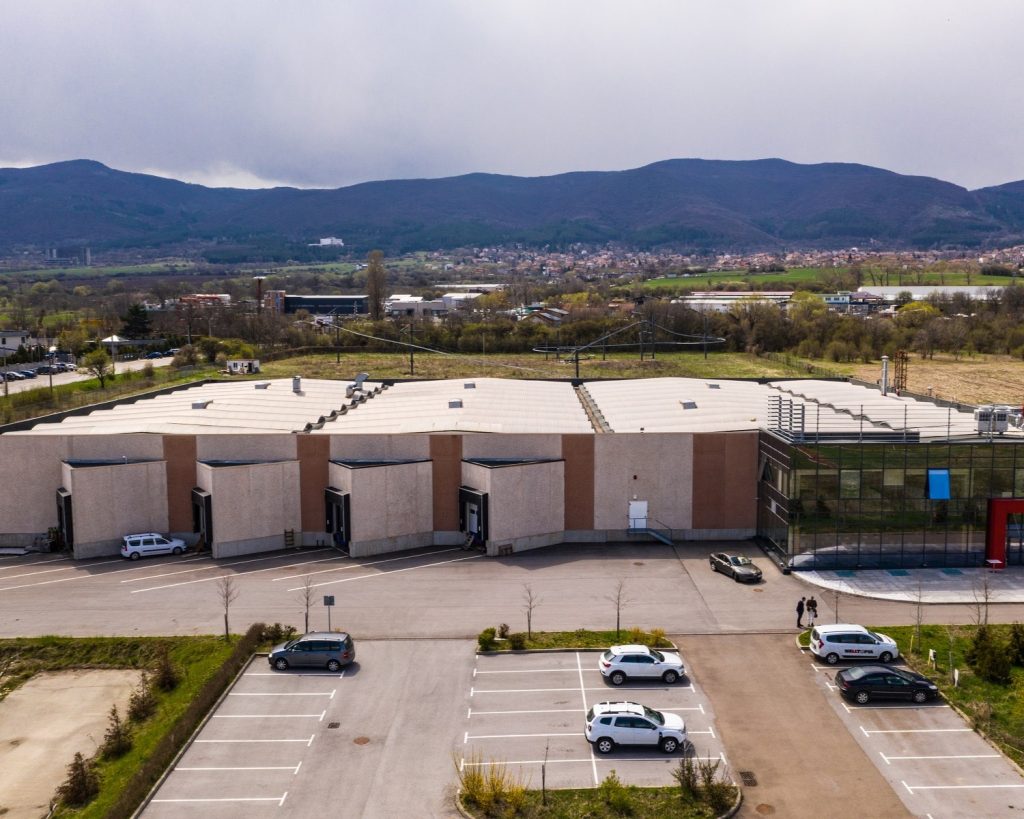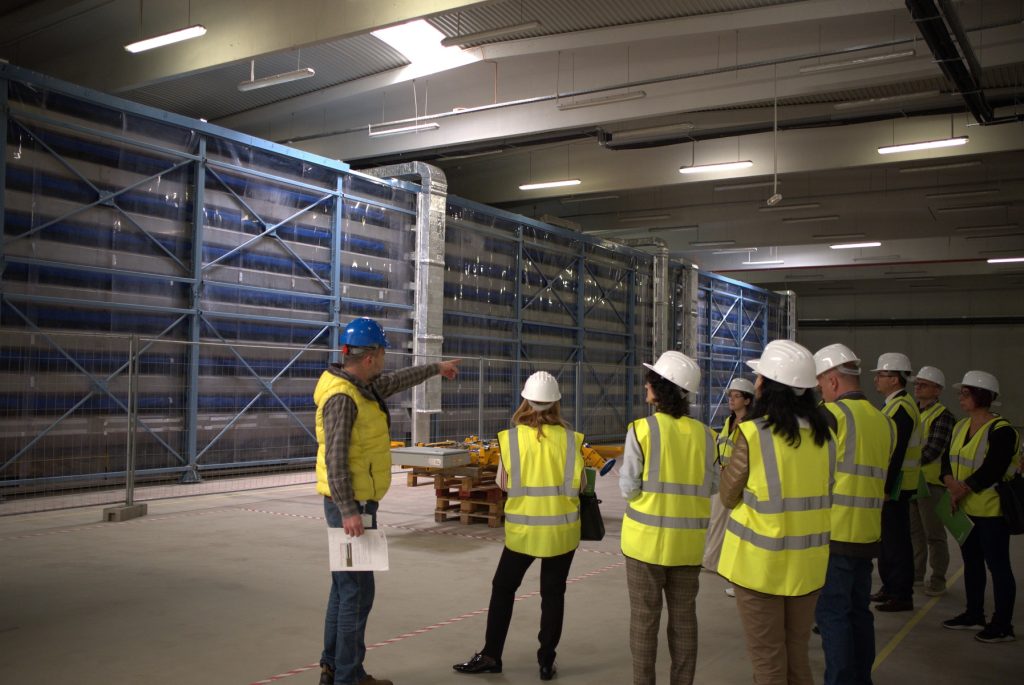You only have a minute? Here are 3 takeaways from the pieThis
• Nasekomo, a company specializing in insect technology, has received a grant worth €2.5 million as part of Bulgaria’s EU-funded National Recovery and Resilience Plan.
• The grant will be paid through the Bulgarian Ministry of Innovation and Growth, with Nasekomo getting the largest share, alongside 11 other Bulgarian companies.
• Nasekomo will use the grant for the first phase of the plan to create an international network of bio-conversion plants
Worth more than €16 million, the grants are awarded to innovative companies that have obtained the “Seal of Excellence” label from the European Innovation Council (EIC). What exactly does the “Mark of Excellence” mean for Nasekomo and how did the company acquire it?
Introduced at Horizon 2020, the quality mark was designed to recognize exceptional innovation and impact among project proposals that qualified but were not funded due to budgetary constraints. Essentially, it rewards projects deemed exceptionally innovative and impactful but which have not secured Horizon Europe funding.
Besides Nasekomo, the following companies also received grants under the program: Ocenime.bg, Picture, CoffeeDanlex, I assemble the mechanics, TransmetricFailmap Technologies, Lean Digital Solutions, Agency Strategma, Simple Security and Kontrax.
How the projects were selected
Nasekomo entered the fray by submitting its project proposal to the European Innovation Council (EIC) in 2021. Competing with over 470 other proposals from across the European Union, Nasekomo’s proposal stood out, and after a rigorous multi-phase evaluation process, the company received the Seal of Excellence in 2022.
“A few months later, the first national procedure for supporting Label of Excellence projects was launched in Bulgaria as part of the European Recovery and Resilience Plan, allowing Nasekomo to implement the research and development phase. development of the project with a grant of 2.5 million euros. The certificate constitutes a powerful endorsement, urging national funding programs to support projects that contribute significantly to the European economy,” the company told The Recursive in a statement.
The image recognition company Imagga is also one of the companies to have benefited from funding as part of the Recovery and Resilience Plan. According to Imagga CEO Georgi Kadrev, the company had been in the process since March 2020, when it applied for EIC funding for a fully and semi-automated visual content moderation project.
“In practice, this means creating technology that can automatically detect inappropriate image and video content on social media and other user-generated content platforms. Our grant application was very well evaluated, but EIC did not have the budget to fund it directly, which is why we received the so-called seal of excellence. This gave us the opportunity to receive national funding under the National Resilience and Recovery Plan which was finally approved in 2022,” Kadrev told The Recursive.
Sasha Bezuhanova, who is a jury member of the EIC committee that awards the grants, but also an angel investor in one of the startups that received the funding – edible coffee cup startup Cupffee, explained further details the selection process in a lengthy Facebook post in response to various complaints by describing the diligent two-step evaluation process.
“Each of these candidate projects is evaluated by four independent remote evaluators (among 1,500 professionals approved by the EIC after evaluation of the relevant expertise) who, as a general rule, do not know each other and have no communication with each other . Their assessments are grouped into a general report with a maximum full assessment of up to 15 points. Companies obtaining a score above 13 points receive the “Label of Excellence”. The companies are ranked and for the next step, a double amount of the planned budget for the respective session is qualified. » Bezuhanova wrote.
As she further explains, in the second stage, companies that pass the initial assessment are invited to participate in interviews with a jury of high-level experts selected by the EIC. This jury includes investment fund partners, angel investors and scientists specializing in innovative economies from different European countries.
Jury members are carefully organized into teams to avoid conflicts of interest, given their involvement in innovative companies. They conduct interviews with finalists and make funding decisions. If a jury member has an investment interest in a finalist company or personal knowledge of the team, a special procedure guarantees impartiality, she explains, adding that she neither participated in the interview or evaluation of Cupffee.
“To give you an idea of the scale of the competition – during the October 2020 EIC session, 4,200 companies applied, 1,291 received the “Seal of Excellence”, 134 were invited to the subsequent and final stage of assessment – an interview. From Bulgaria, these are two companies: Cupffee and I Rise Mechanics 357,” Bezuhanova says on social media. job.
What’s next for businesses and how will these subsidies affect their development
In July this year, Nasekomo opened its Insect Center of Excellence (NICE) and marked the first full production cycle at the facility – from insect genetic improvement to final product manufacturing, culminating in the delivery of the initial batch of protein meal for pet food. .

Today, the latest grant will allow Nasekomo to embark on the first phase of its project to create an international network of bioconversion plants, strategically located near the agricultural or industrial sites of future partners engaged in the use sustainable use of secondary raw materials.
The grant will support the first phase of construction of a multiplication center to enable the operation of the network of bio-conversion plants bringing to life the first scalable industrial solution. The center will be equipped with robotic and digital technologies to provide everything needed for a scalable solution: turnkey bioconversion technology, supply of Hermetia Illucens larvae, remote maintenance, data and decision support services, and access to the global protein market, the company explains. The recursive.

The grant contract with Nasekomo extends over two years, facilitating the realization of their project. By 2030, the company aims to operate 100 bioconversion plants across its network, each capable of processing up to 100,000 tonnes of biowaste into valuable insect protein, oil and organic soil fertilizer.
According to Nasekomo, the effort is expected to avoid the annual processing of 560,000 tonnes of wild fish into fishmeal, reduce the EU’s dependence on imports and significantly reduce carbon emissions.
For Kadrev and Imagga, the new funds are mainly used to improve their product.
“The funding will be used to improve the accuracy of the technology, to expand the scope of content types to be automatically detected, and to make it suitable for high-throughput scenarios such as live stream moderation,” Kadrev told The Recursive .

